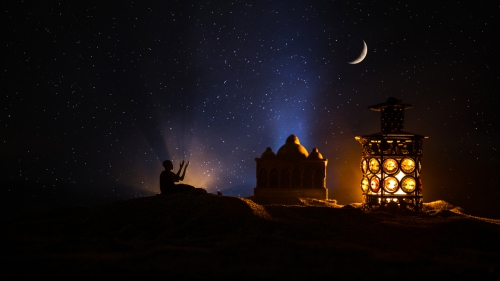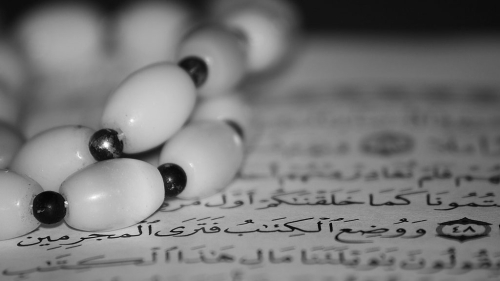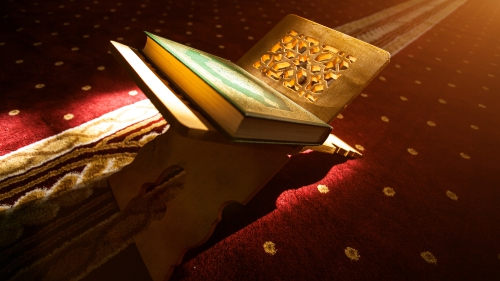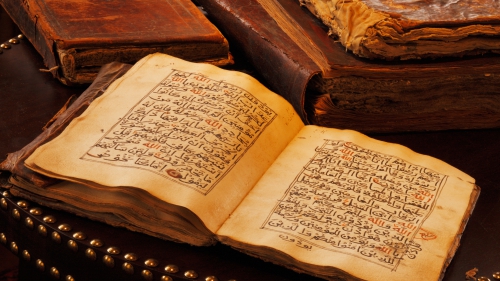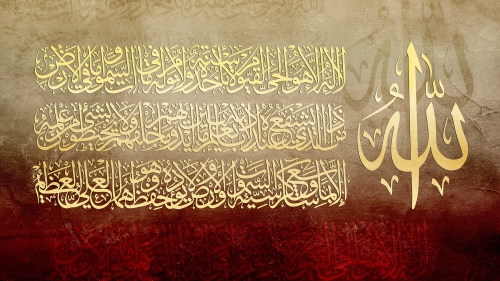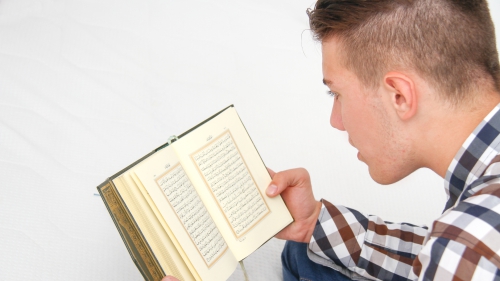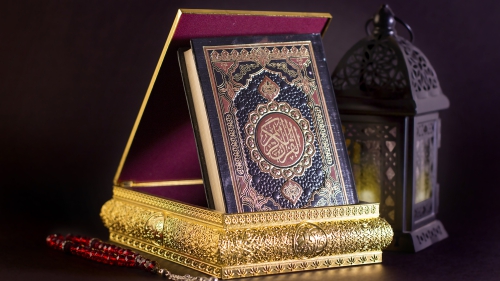A Qur'anic Odyssey

Umm Muhemmed is an American born development economist by trade, born and raised in northern New England. She holds both a BA and MA from Columbia University and a PhD from the University of Cape Town, Graduate School of Business, where she also worked between 2004 and 2010, focusing on private sector participation in the electric generation sector. She has worked in the electricity sector, with a range of multilateral institutions, including the World Bank, across developing regions, for the past decade.
Most recently, she has been involved in power sector reform in Nigeria. She is a writer and an aspiring hafidha (Feminine of, one who memorizes the Qur'aan). Her first novel, A Qur'aanic Odyssey: Aspiring to Juz Amma, published by Greenbird Books in April 2012, is part of an effort to make hifdh al Qur'aan more accessible to Muslims and non-Muslims alike. She is presently working on the sequel, Ya Sin, excerpts of which are presently available via QuranClub. Prior to her reversion to Islam in 2003, she studied classical Arabic at Middlebury College, as part of a life-long quest to understand the connection between the religious and the secular. She has also done extensive studies in comparative religion, including Hinduism, Christianity and Judaism.
Following are some insights that Umm Muhemmed shared in response to some questions about herself and her book.
What's A Qur'aanic Odyssey about, and for whom is it intended?
The narrative is based on Ibrahim aged five, and Amna aged two, who embark on a journey of hifdh (memorizing) al Qur'aan with their mother Khadija and father Abdurrahman. Through the eyes and hearts of this young family, I hope to teach courage and patience, and encourage readers to reflect on how to develop love for the Qur'aan and other sacred texts.
A Qur'aanic Odyssey is for all who are interested, including parents who coach their children in learning and memorizing Qur'aan or more general Qur'aanic study. I also hope to reach out to non-Muslims, especially any who may be linked to cross-cultural families, trying to navigate and understand some of the intricacies of the 'culture' of Islam, especially with regard to the Qur'aan. In addition, the text may be used in a classroom environment including by teachers, of any faith or conviction, who seek to present Islam and more specifically the Qur'aan in a positive 'real life,' 'Western' environment. Through storytelling, I aspire to demonstrate that the Qur'aan and Islam may be complementary to the 'West'.
Could you tell us a little about yourself and how you came to Islam?
We all wear many hats. I feel very fortunate to have so many diverse roles: as mother, wife, daughter, sister, development economist, author, educator, and, perhaps most importantly, student. In all of these roles, I seek to learn as well as to live Islam in an increasingly true and compassionate way. A Qur'aanic Odyssey is a new outlet for me. It is very different from the academic writing that has occupied my work over the last decade, and yet the process of conceiving and writing the book has taught me endless lessons about hifdh, motherhood, the Qur'aan in general, and of course, the process of writing.
As with many people, my conversion story is lengthy. It involves a considerable journey through the Episcopal Church, Syria, Pakistan, Middlebury Language School, and the Associated Press (where I worked as a researcher), among other places. It is one based on constant inquiry and truth seeking. It is also an evolving story. Although one makes a decision at a certain point in time, one reaffirms that decision each moment, each day, akin to a marriage vow. There is a certain date when we are married, however, we live our vows day after day, and hopefully seek to increase the love in our relationship. Such is the faith quest, as well.
Why did you write this story? Who and what inspired you?
The book arose in part as a response to a superhero figure that emerged in my son's life, through no introduction of mine, I might add. I was amazed how such figures completely mesmerized my son and so many of his peers. As we had already started on our own hifdh journey, I was curious how I might attract the same interest, harness the same energy for our Qur'aan lessons. Initially, I sought to create a Qur'aan/hifdh game, but my computer programming skills were inadequate. Then, I thought I might simply create a type of Qur'aanic superhero for him, almost in the style of a comic book. As I wrote, however, I found myself developing a series of characters to whom he could relate directly, and who could potentially encourage him on his own hifdh journey, simply by their real life example. I also sought to reach out to many adults who had little or no experience with hifdh and Qur'aan and found that the children's voices could be straightforward, thoughtful, non-threatening and ultimately very effective in communicating a message.
I have also been inspired by my teachers, especially Hafidha Rayhaanah Omar, founder of Fee Qalbee, who has shared countless child-friendly Qur'aan activities. My own two young children, who are also mentored by Hafidha Rayhaanah, are the source of endless inspiration, along with nieces and nephews. The author of A Muslim Princess, Umm Aasiyah Muhammad, also deserves special mention here, both as an author and as the parent of an aspiring hafidha.
What's the main message of A Qur'aanic Odyssey?
Two main messages. Hifdh may be fun (although it is hard work). Working on hifdh, at home, has the potential to be extremely rewarding for the whole family.
How might parents, teachers or students find this book useful?
Almost every chapter showcases at least one hifdh activity: namely it demonstrates how Ibrahim, Amna and Khadija are learning one of the surahs from Juz Amma (Last Part of the Quran). In this regard, parents (and other teachers as well) may inshaa Allah gain insights about how to approach surahs in a fun, loving and thoughtful way. In addition, the book includes 'hifdh teaching notes' (immediately following each chapter) which endeavor to go one step further in providing recommendations for how to generate a positive and productive response from our little ones. At the same time, it is not an in depth novel. Each chapter is short, almost like a skit, and is intended to highlight life lessons amidst Qur'aan learning. The text may be read to children, by children, and/or solely by adults. It is intended to be interactive inshaa'Allah (God willing).
What's next for you?
As a person of faith, I don't think that we fully choose our destinies. I am busy working on hifdh, coaching our children (in Qur'aan and life, in general), writing a sequel to A Qur'aanic Odyssey, and keeping a number of other projects afloat, but one never fully knows what Allah SWT has in store for us. I try to keep a certain pace and focus, while at the same time, being open to the endless opportunities of learning and teaching that come our way inshaa Allah.
What specific advice can you give to anyone who wants to develop a relationship with the Qur'aan? Or anyone who wants to memorize the Qur'aan?
I am in no position to hand out advice. Suffice it to say, as a revert, who embraced Islam as an adult, I feel very fortunate to have been exposed to hifdh and to have been blessed with the opportunity to share the transformative experience through A Qur'aanic Odyssey. For me, the daily discipline of recitation, especially in salah, is essential, together with constant interaction with an inspired and inspiring teacher, who emphasizes understanding and applying the verses. Outreach is also critical for me, and trying to share the miracle of hifdh al Qur'aan. I recently addressed a non-Muslim audience on the subject of hifdh, in an attempt to build bridges with many in my hometown of Portland, Maine. The interactions left me humbled and invigorated, with a sense that inshaa Allah we are pursuing a Prophetic tradition. After all, what more wonderful question to receive (in a Q&A with such an audience) than: 'Does the memorization and recitation change you?'
A Qur'aanic Odyssey by Umm Muhemmed, published by Greenbird Books, is available via Amazon.com. Click below.
Check out the book's website at: http://aquraanicodyssey.wordpress.com/
Related Suggestions
really an inspiration for everyone including the non-Muslims the new
Muslims and we the so called old Muslims that take things for
granted.This serves as a lesson for all those who want sit down and
reflect.
age of puberty many of them after 40 years. Wahey (revelation)
started coming to Rasulullah at the age of forty years.So he was
forty and Abubakar was about 38 and many sahabas were more than
fifty including Khadijah Radhiallahu Anha the first woman who
believed in the message of the Prophet (S.A.W) So it is not an
excuse for us to say that we cannot learn the Quran if we are really
serious and sincere. If there is a will there is a way.Remember we
learn so many things and unfortunately many of them would be of no
use and benefit to us here and the Hereafter as they would not help
us at the time of death no in Qabar Hashr or Qiamah. So Shukuran our
beloved Sister may Allah increase your knowledge to benefit the
whole Ummah and we become the means of hidayah to the entire mankind
who are in desperate need of guidance of the Quran.It is we the
Muslims who should first return to Quran and the Sunnah of the
Prophet (S.A.W)







